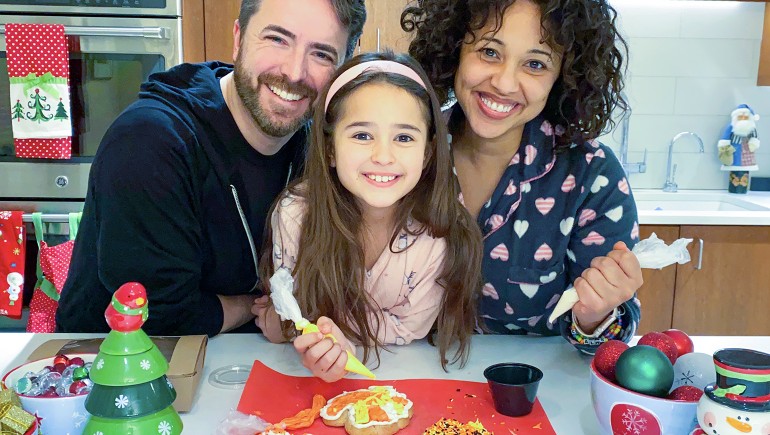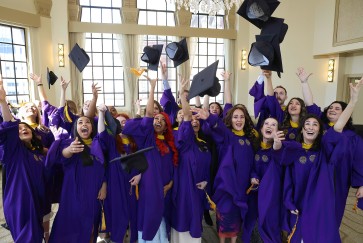Melissa Foster never imagined moving back into Shepard Hall after completing her undergraduate and master’s degrees at Northwestern, let alone calling the same residence hall she lived in during her time on the Evanston campus “home.”
But six years ago, nearly two decades into her professional career and with a husband and a young daughter, that’s exactly what happened.
Foster is an assistant professor of instruction and specializes in musical theater in the School of Communication. But in her role as faculty-in-residence, Foster also is a mentor, bridge builder and an “away-from-home mom” for more than a thousand students. For the last six years, she has been the faculty-in-residence covering the South area residence halls. This fall, Foster will move to the Northeast residential area, and Medill professor Ava Thompson Greenwell will become the new faculty-in-residence for the South area.
“When I heard that this position was a thing at Northwestern, I came home and told my husband that I would love to move back to campus,” Foster recalled, adding that her husband initially thought the proposal was a joke.
“I think residential life is one of the best parts of college,” she said. “I love building community and as a faculty-in-residence, I can be who the students need me to be for them.”
Easing the transition from home
The faculty-in-residence program was founded in 2010 and comprises five faculty members who live full-time in the residence halls. In addition to helping facilitate a smooth transition for first-year students, the program also aims to encourage student engagement, enhance learning and strengthen students’ overall sense of community and connection to Northwestern.
“The programming is nice because it allows you to meet people that are in your residence hall and neighboring ones as well,” said first-year student Dan Murrieta. “You have a person that you can trust if there is an issue or if you need help with something.”
First-year student Lilly Sorkin went to the same small school for 13 years and said she was nervous about making the transition to a college environment. Getting to know Foster as her faculty-in-residence helped make the transition easier.
“Having someone who is a faculty member like Melissa living nearby is so welcoming,” Sorkin said. “She’s more than happy to share advice when I need it.”
“Melissa facilitates community very well,” said first-year Karis Liu. “College is very stressful, but coming to an event planned by Melissa helps because I can make new friends. It’s escapism. You don’t have to worry about what you’re doing or studying.”


